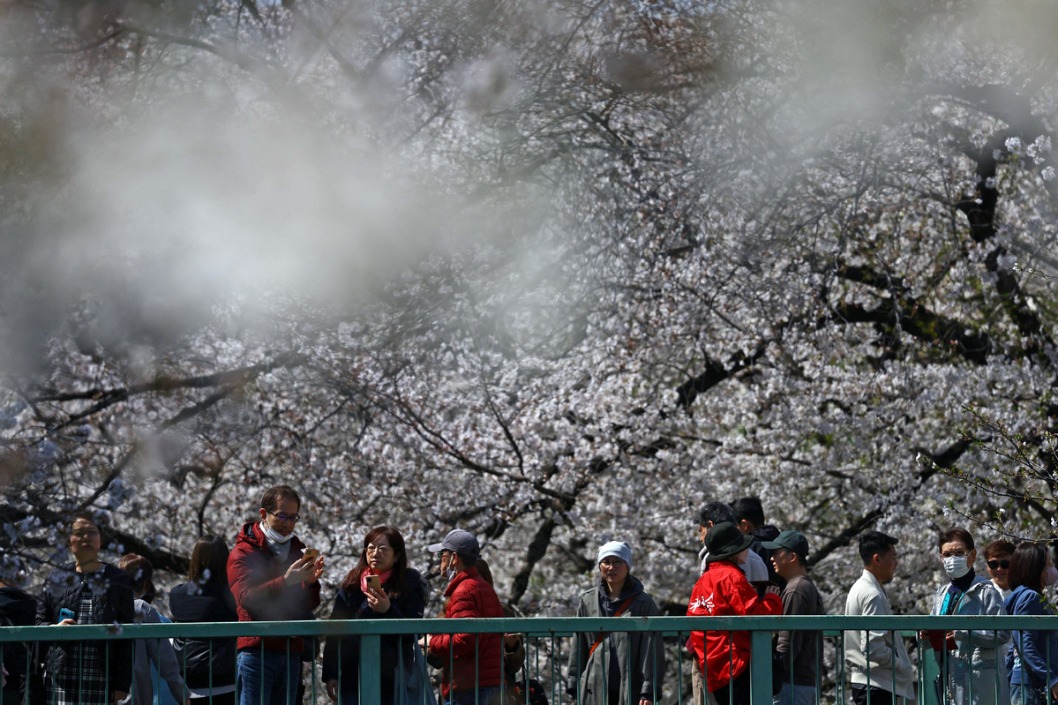Protectionism alarm sounded with tariffs
Washington's move to raise consumer prices but won't bring back jobs: Experts

The sweeping US tariffs signal a return to protectionism that could trigger recession and global economic damage, warn analysts. While pitched as a manufacturing revival tool, experts say the measures will mainly raise consumer prices without bringing back jobs.
On Wednesday, US President Donald Trump announced 10 percent tariffs on all imports from over 180 countries and territories, and higher rates on many trading partners.
The stark reaction to Trump's broad tariffs was reflected in the US stock market on Thursday.
The Dow Jones Industrial Average dropped more than 1,600 points; the Nasdaq was down by almost 6 percent; the S&P 500 was lower by nearly 5 percent, while the US 10-year Treasury note yield was down to 4 percent, signaling a flight to safer investments.
More than $2 trillion in value was wiped from the US stock market, or an average of more than $5,000 in one day for each person in the US.
An opinion piece titled "Trump's New Protectionist Age" by The Wall Street Journal Editorial Board called the move "another large step toward a new old era of trade protectionism".
"Assuming the policy sticks — and we hope it doesn't — the effort amounts to an attempt to remake the US economy and the world trading system," the editorial said.
The WSJ said if the tariff brings widespread retaliation from other countries, "the result could be shrinking world trade and slower growth, recession, or worse".
It listed other potential consequences: harm to US exports, a deeper Washington "swamp" in which businesses lobby for tariff exemptions, and the end of US economic leadership in the world.
David Rosenberg, president and founder of Rosenberg Research, said no winner will come out of a global trade war.
"And a lot of that will get transmitted into the consumer, so we're in for several months of a very significant price shock for the American household sector," he told CNBC.
Of the thousands of comments made on the WSJ website about the tariffs, the vast majority were critical of the policy.
'Financial death sentence'
Reader Timothy B said the tariff is "a financial death sentence wrapped in a red hat and stamped 'Made in Chaos'" and questioned: "Prices are up, jobs are down, and your answer is more tariffs?"
Reader David Andrews said he started shopping for a Chevy Equinox on March 4.
"The average advertised dealer discount was $2K in March. Now it is zero. One dealer even posted a 'Market Adjustment' on top of the MSRP. So much winning! MAGA!", he said sarcastically, vowing to never vote for the GOP again unless it pushes back against the tariffs.
Experts said US consumers will see price increases for daily goods such as pineapples, 88 percent of which are imported from Costa Rica, which now faces a 10-percent tariff; cashews, 89 percent of which are imported from Vietnam, which now faces a 46-percent tariff.
When Christmas comes along, US consumers can expect to pay more also: Roughly 70 percent of Christmas lights are imported from Cambodia, which faces a 49-percent tariff.
Shane Oliver, head of the investment strategy and chief economist at AMP, said the new tariff rate is above levels seen in the 1930s and it will "in turn add to the risk of a US recession — via a further blow to confidence and supply chain disruptions — and a bigger hit to global growth".
With the new tariffs, Oliver predicts that "the risk of a US recession is probably now around 40 percent" and global growth could be pushed down by 1 percent, "depending on how significant (the) retaliation is and how countries like China respond with policy stimulus".
Some people in Trump's base cheered for the decision, believing that it will bring jobs back to the US. However, experts don't believe tariffs will bring manufacturing jobs back.
Steven Durlauf, a professor at the University of Chicago, said during a Q&A session on Wednesday that "tariffs are likely to cause negative employment effects because of the way that they ripple through the economy".
Taking the steel tariff as an example, Durlauf said that while it might bring back limited jobs to an industry with a total of 150,000 workers, it negatively impacted more than 2 million manufacturing jobs involved in making products using steel. So, the total job gains were actually negative as a result of the tariff, Durlauf said.































